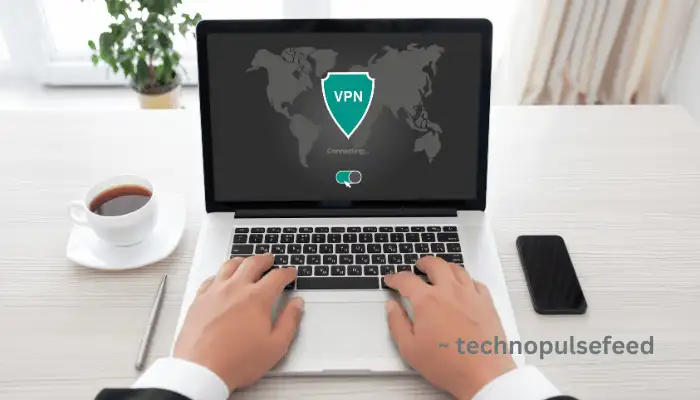Virtual Private Networks (VPNs) may conjure images of illicit activity and shadowy figures operating on the dark web; however, VPN services are legal in many countries around the world – including India – providing encrypted Internet connections, masking IP addresses, and protecting users against tracking by governments and Internet Service Providers (ISPs).

Assuming you had doubts, VPNs do not play any part in illegal web browsing. Of course, as with any technology, they could potentially be misused for unscrupulous reasons by bad actors; but that does not equate to all use of VPNs by criminals; that would be like saying all use of internet itself was for illegal activities only.
No matter the valid reasons to utilize VPNs for privacy purposes, users must also understand their legal ramifications. Understanding local laws regarding VPN use will enable compliance.
Are VPN Services Legal in India? Each nation imposes different regulations regarding VPN usage. Some nations prohibit or severely regulate them – for instance Belarus, China, Iraq, North Korea, Oman Russia and UAE are examples. In such areas using a VPN could result in penalties being assessed against both users and service providers alike.
India legalises VPN use, though individuals have reported facing legal repercussions for using such services. Therefore it’s advisable to stay abreast of legal restrictions and refrain from accessing banned sites via VPN services.
What Are Punitive Action Against VPN Cases?
While VPNs themselves are legal, using them for illegal activities such as hacking or accessing banned websites still remains punishable. VPNs should serve to increase online security and privacy rather than facilitate illegal actions.
Also, use of VPNs to bypass geo-restriction may violate legal and service terms in certain jurisdictions; always review both Terms of Service of both VPN providers as well as of websites access to ensure lawful usage.
Carefully Read Terms of Service Agreement
Users should utilize common sense when reading through and carefully reviewing their VPN provider’s Terms of Service agreement, particularly where such terms outline that users can be held liable for illegal activities conducted via VPN service providers and may report suspicious activities directly to law enforcement authorities.
India does not guarantee individuals the legal right to private browsing; however, individuals may browse anonymously as long as their actions do not violate any part of India’s Information Technology Act of 2000. Debate regarding privacy rights continues apace.
What Are the Uses of VPNs?
VPNs have become an increasingly popular solution among individuals and organizations seeking enhanced Internet privacy. Here are the primary uses for them:
Secure Public Wi-Fi Networks: Public WiFi networks are typically unprotected and vulnerable to cybercrime; by connecting to a VPN service and encrypting data, personal information will remain safe from prying eyes and kept secure.
Access Content: VPNs allow users to unlock geo-restricted content such as streaming services by connecting to servers located within their home countries.
Maintaining Privacy: VPNs help users maintain their online anonymity by blocking advertisers and third parties from tracking online activity, while no-log VPNs ensure even service providers do not track user information.
Bypassing Network Restrictions: VPNs offer users an effective method for bypassing network restrictions at workplaces or educational institutions, so long as users respect and adhere to any policies of these institutions that govern access. In order to prevent violations from taking place.
One of the greatest advantages of using a VPN is increased security when connecting to public Wi-Fi networks found in coffee shops, airports, and hotels – these networks being susceptible to hacker attack, password protection and financial details remain safe from being exposed online by cybercriminals. By encrypting your internet connection using a VPN server you ensure your information (passwords or financial) stays private against potential hacks who might attempt access your personal data and cause disruptions or theft.
Geo-restricted content can be an aggravation when traveling. VPNs offer an effective solution by connecting users directly to servers located within their own country – giving access to content which would otherwise remain unavailable – such as streaming movies and TV shows or visiting restricted websites in certain regions.
Maintaining Privacy mes Online privacy has become an increasing priority as advertisers and third parties closely track users’ online activities. VPNs protect users’ online activities by masking IP addresses and encrypting internet connections, making it harder for third-party entities to monitor browsing habits and track browsing history. Many VPN providers also operate under no log policies that do not monitor or store activities related to a given VPN account, providing further privacy assurance.
Bypass Network Restrictions
VPNs can help bypass network restrictions to give access to the full internet; however, it is vitally important for employers or educational institutions to understand and follow any associated rules or policies to avoid potential violations or disciplinary measures against staff members or students.
Conclusion
Though VPNs offer numerous privacy advantages, users must use them responsibly. By keeping up-to-date on local laws and service terms, one can ensure they make use of them responsibly – such as India where using them legally is permissible but making sure not to violate them in any illegal activities – can enhance online privacy and security more efficiently than otherwise possible. By adhering to best practices when employing these tools responsibly you can strengthen both privacy and security online effectively.
